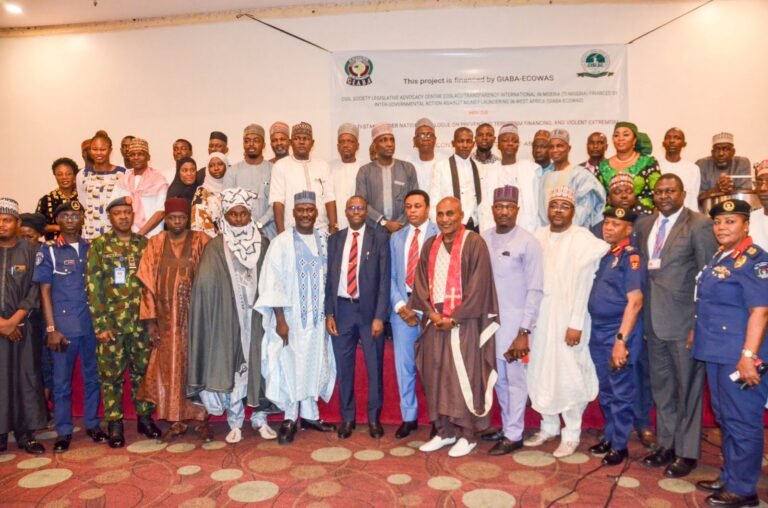Transparency International, Nigeria (TI-Nigeria) has said that weak security and surveillance at national borders was major contributor to the issue of terrorism financing in Nigeria.
It added that lack of control and monitoring allows terrorists, as well as small arms and light weapons, to infiltrate the country quickly.
To this end, seeks adequate and effective collaborations on the part of law enforcement and regulatory agencies to tame the problem of terrorist financing in Nigeria.
In his welcome remark at a multi-stakeholder national dialogue on preventing terrorism financing and violent extremism in North Eastern part of Nigeria, the Executive Director, CISLAC/TI-Nigeria, Auwal Ibrahim Musa (Rafsanjani), stressed the imperative of strengthening security measures at borders by Nigerian authorities to prevent the inflow of funds and resources for terrorist activities.
He noted that effective information sharing is crucial in combating terrorism financing, yet there seems to be a lack of coordination among various agencies and institutions. This he said, hinders the ability to track and intercept suspicious transactions and apprehend those responsible for financing terrorism.
Rafsanjani explained that the lingering inter-agency rivalry among response agencies constitutes an impediment to intelligence gathering and information sharing for coordinated response to potential violent signals.
According to him, “Unhealthy inter-agencies rivalry and struggles for superiority among response agencies competing for resources have been identified as major barriers to coordinated response to conflict warning signals at all levels.”
The TI/CISLAC boss speaking further, said: “We are indeed excited to bring under one roof, state and non-state actors as part of the effort to drive a collective resolution and citizen-oriented approach towards the prevention of terrorism, terrorism financing and violent extremism with specific focus on North-East Nigeria.
“This Dialogue remains critical to galvanise all-inclusive conversation on the thematic focus, giving the recurring threats to lives and property of many Nigerians, occasioned by terrorism and violent extremism that have hitherto bedeviled the country.
“You would all agree with me that terrorism constitutes a global threat, and Nigeria, unfortunately, is one of the countries that faces a high level of terrorism. While attempts to combat terrorism and violent extremism in the country continue, policy attention has been shifted towards many sources of terrorism financing, which have continued to fuel terrorism and other violent conflicts in Nigeria.
“Without doubt, terrorism finance is the backbone of terrorist groups as funds go into buying weapons, recruiting militants, and operating terrorist organisations. Just as the United Nations Office on Drugs and Crime (UNODC) puts it, “terrorist groups need money to sustain themselves and carry out terrorist acts.”
Rafsanjani, further stated that, poor awareness at community levels hamper collective monitoring and timely response to warning signals of potential terrorist activities and violent extremism.
“The security situation in Nigeria has become increasingly complex and uncertain, as various non-state armed groups have emerged and consolidated coercive power to terrorize the population in Nigeria, as evident with the activities of the armed bandits, criminal gangs, separatist groups, religious fundamentalists, amorphous kidnappers, and many others often referred to in the Nigerian media as “unknown gunmen”.
“The consequences of terrorism have continued to aggravate extreme poverty rates among Nigerians, internally displacement, devastated livelihoods, just as opportunities for broader growth, development and prosperity are destroyed.
“Hence, the prevention of terrorism is highly desirable and should be a top priority of our beloved country for sustainable development. More importantly, the capacity gaps within law enforcement and regulatory agencies also hamper efforts to address the challenge of terrorism financing effectively.
“These institutions must be adequately equipped and trained to detect and disrupt the financial networks of terrorist organisations. Without the requisite capacity, it becomes incredibly challenging to investigate and prosecute individuals involved in financing terrorism.
“I must stress the fact that poor governance and corruption drive terrorism and violent extremism, which are among observed cases in the North-East of Nigeria,” he said.

